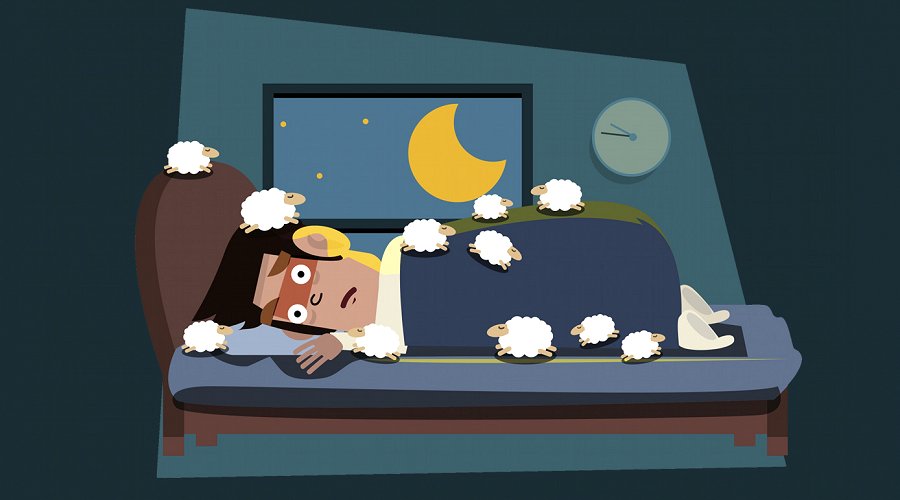Insomnia Among the Mental Health Population in Singapore
Published on 8th July, 2018

Insomnia and mental health
Insomnia is defined as a sleeping disorder characterized by difficulty falling asleep or staying asleep. Individuals suffering mental illnesses commonly complain of sleep difficulties. According to Na and colleagues (2011), 80.2% of patients with panic attacks met the diagnostic criteria for insomnia. Belanger (2004) found that among patients with generalized anxiety disorder (GAD), 47.7% reported difficulties falling asleep and 63.6% had difficulty staying asleep. Insomnia is also listed as a symptom for the diagnosis of depression. A large-scale review of studies exploring insomnia and depression estimated that up to 90% of patients with depression reported concerns about sleep quality (Soehner et al., 2013).
Research has indicated that comorbid insomnia exacerbates the symptoms experienced for several reasons. Insomnia contributes to impaired functioning as well as lower energy levels. In addition, insomnia also leads to irritability, anger issues, and decrease one’s capacity to cope with stress.
In 2013, the publication of the Diagnostic and Statistical Manual of Mental Disorders (DSM-5) significantly altered how psychologists and psychiatrists diagnose insomnia. The DSM-5 places a greater emphasis on the diagnosis and treatment of insomnia despite diagnosis of another mental health disorder (e.g. depression or schizophrenia). In the past, the presence of sleeping difficulties in individuals with mental disorders may lead psychologists and psychiatrists to diagnose insomnia as a secondary disorder, and/or a symptom of a primary mental health condition (e.g. depression with secondary insomnia). The revision in DSM-5 views insomnia as a unitary disorder (without the distinction of ‘primary’ or ‘secondary’) and should be given similar importance for treatment.
Insomnia in Singapore
A random survey of 430 adults in Singapore found that up to 46% of the respondents reported experiencing some form of sleep difficulties. Apart from depression, other common causes of sleeping difficulties in Singapore include irregular sleeping habits, excessive thinking at bedtime, and excessive caffeine consumption.
The current study
The paper discussed in this article was published in the Journal of Clinical Sleep Medicine, and the study was led by researchers and psychiatrists from the Institute of Mental Health, Singapore.
The goal of the study was to determine the prevalence of DSM-5 insomnia disorders in individuals who existing mental health issues. This is to inform psychiatrists and psychologists who are treating individuals with depression, anxiety disorders, schizophrenia or other mental illnesses on the importance of treatment
400 outpatients who were seeking treatment at the Institute of Mental Health, Singapore, were recruited for the study. 100 outpatients had been diagnosed with major depressive disorder, 100 with anxiety disorders, 120 with schizophrenia spectrum disorder (i.e. schizoaffective disorder or schizophrenia), and 80 with bipolar disorder.
Participants completed a questionnaire on sociodemographic information, such as age, marital status, and employment. This was followed by a set of questionnaires on their sleeping patterns, and any potential outcomes of insomnia. The data collection process was completed with a structured interview- the Brief Insomnia Questionnaire. Participant’s medical information, including psychiatric diagnoses, use of sleep medication, and use of mental health services (e.g. psychologist visits, hospitalization, and appointments with psychiatrists) were gathered from medical records.
Results: Insomnia and mental illness in Singapore
The study found that 31.8% of participants in the study met the criteria for diagnosis of insomnia. A younger age, unemployment, lower levels of physical activity, having a secondary psychiatric diagnosis (e.g. depression with an anxiety disorder), and being on sleep medication were associated with higher likelihood of insomnia.
Insomnia was most prevalent in depressive disorder (45%), followed by anxiety disorder (33%). The prevalence of insomnia in participants with schizophrenia was 25%, while 23.8% of those with bipolar disorder met the criteria for insomnia.
The study also found that participants who met the criteria for insomnia functioned poorer daily, experienced higher levels of daytime fatigue, and scored lower in their well-being.
Implications of insomnia treatment for individuals with mental health issues in Singapore
The high rates of insomnia in psychiatric population indicated in the study highlights the importance for psychologists and psychiatrists treating individuals with mental health issues to also assess the presence of insomnia in their patients. Equal importance should also be placed on managing insomnia when treating their patients.
The findings by Wong and Ng (2015) also highlights the importance of treating insomnia in psychiatric patients, and not regard insomnia as a symptom of depression or other mental illnesses. The researchers found that for individuals with both a mental illness and insomnia, the cause of insomnia in 35.9% of the patients are not attributable to a mental illness.
For individuals who are seeking treating for their mental health condition, highlighting concerns about their quality of sleep may help alleviate their insomnia, and further aid their recovery journey.
References.
Bélanger, L., Morin, C. M., Langlois, F., & Ladouceur, R. (2004). Insomnia and generalized anxiety disorder:: Effects of cognitive behavior therapy for gad on insomnia symptoms. Journal of Anxiety Disorders, 18(4), 561-571.
Na, H. R., Kang, E. H., Yu, B. H., Woo, J. M., Kim, Y. R., Lee, S. H., ... & Chung, S. K. (2011). Relationship between personality and insomnia in panic disorder patients. Psychiatry investigation, 8(2), 102-106.
Sanofi ~ Synthelabo Singapore Pte Ltd. Survey on prevalence of insomnia and insomniac’s coping behaviour in Singapore. The Straits Times. 2002 Mar 30
Soehner, A. M., Kaplan, K. A., & Harvey, A. G. (2013). Insomnia comorbid to severe psychiatric illness. Sleep medicine clinics, 8(3), 361-371.
Tsuno, N., Besset, A., & Ritchie, K. (2005). Sleep and depression. The Journal of clinical psychiatry.
Wong, S. H., & Ng, B. Y. (2015). Review of sleep studies of patients with chronic insomnia at a sleep disorder unit. Singapore medical journal, 56(6), 317.